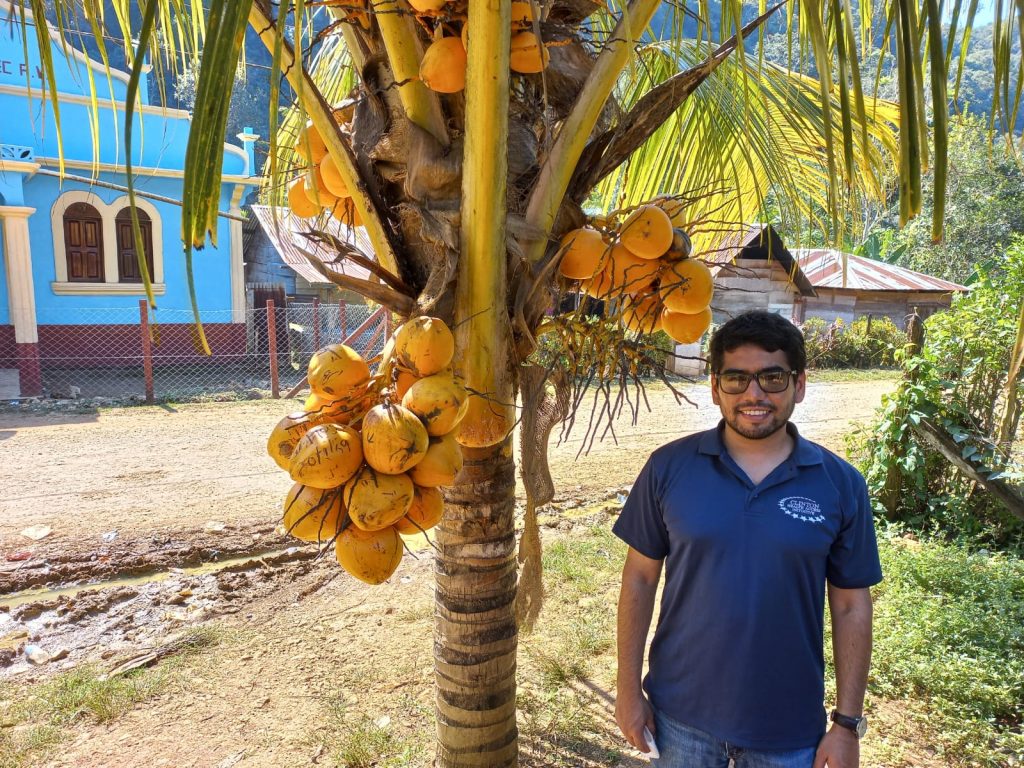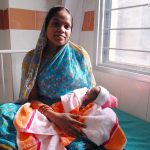Hugo Flores Navarro MGA ’21 manages the Clinton Health Access Initiative Malaria Program in Guatemala. A physician from Mexico who has worked for Partners in Health, Flores Navarro recently spoke to the Keough School about current work in public health policy and how the Keough School prepared him for his new role at the Clinton Health Access Initiative (CHAI). A global health organization, CHAI is committed to saving lives and reducing the burden of disease in low-and middle-income countries.
Q: How did you land your current position at CHAI?
A: I heard about openings at CHAI from a close friend. I applied for several positions, as I felt that the organization matched what I wanted to do: public health policy work. A couple of acquaintances from my previous employer, Partners In Health, put in a good word for me during the application process.
In our Career Colloquium course for the Master of Global Affairs program at the Keough School, the faculty always emphasized the importance of networking and I think one cannot stress it enough. Having mentors and allowing yourself to be mentored is so important, as is asking for advice from people who know you well—they likely have good insights into your talents and can point you in the right direction.
Q: What are your primary responsibilities at CHAI?
A: I manage the CHAI malaria program in Guatemala, part of a broader initiative to eliminate malaria in the Mesoamerica region—southern North America and most of Central America. My team consists of five people who advise the national government in strategies that range from vector control—controlling mosquito populations and preventing people from getting bitten—to epidemiological surveillance—looking at how data is collected and analyzed—to case management—malaria diagnosis, treatment, and follow-up through recovery. We also evaluate how outbreaks are investigated and how potential contacts are traced.
Q: What do you enjoy about your role?
A: I like working with the Ministry of Health at all levels. I enjoy interacting with the National Malaria Program and the Departments of Epidemiology and Health Informatics. I also really enjoy going into the field and working with the people directly involved in eliminating malaria in the country.
Q: What are some new insights you have learned about public health?
A: This is my first time directly and routinely interacting with national and regional representatives from multilateral bodies such as the Inter-American Development Bank and the Pan American Health Organization. It is also the first time I have had to think about all aspects and trade-offs that nationwide policy changes involve. A typical trade-off involves weighing whether you want a more intensive intervention in a more localized geographic area or a less intensive intervention that reaches a whole country. In this case, for example, we only focus on national-level policy, whereas in my previous role at Partners in Health we focused on intensive programs in one region of one state in Mexico.
Q: What are the most pressing public challenges in Guatemala?
A: As it is in Mexico, where I am from, Guatemala faces the challenge of sustaining a public health system with limited resources. There are not enough staff or supplies to maintain services for the whole population, particularly in remote rural areas. Having to distribute a limited budget always means prioritizing one important health issue over another important one, which has been incredibly challenging during the COVID-19 pandemic.
Q: What skills and knowledge from the Master of Global Affairs program have proven to be most helpful to you professionally?
A: Understanding how organizational, political, and economic factors interact with health policy and why it is hard to make policy changes has been crucial. At the Keough School, I gained essential insights on ways to frame and position a policy change for different audiences. For example, when trying to implement a new project or policy we need to be able to see the implications that it will have for people’s lives. Will their jobs change? Will they have to work more? Will they need to learn new skills that may be difficult to learn? Will funding and budgets change? Will someone’s job cease to exist? The trick is to figure out how to create win-win conditions for all stakeholders.
Q: How would you describe the MGA program to a prospective student?
A: The program is full of great classes and it is impossible to take all the courses that you would like to take. It is an excellent opportunity to learn from wonderful professors across many disciplines and from a genuinely diverse cohort made up of students from all over the world and all types of backgrounds.
Q: Would you share one of your favorite memories from your time as an MGA student?
A: During our first year, before the COVID-19 pandemic hit, I enjoyed going to the lectures that the Keough School organized each week on different topics and being on the hunt for events across campus with my friends. The opportunities for learning and sharing that the university offers are one of the program’s most significant assets. I was chosen by my classmates to speak at our graduation ceremony, and I appreciated that the university did not try to change or censor my speech at all, which focused on the need for radical change in foreign aid policy. Having this kind of freedom to speak publicly showed me that Notre Dame is willing to be a pioneer in a new approach to international development.
Top photo: Hugo Flores Navarro MGA ’21 during a field visit to Semax, a community in Alta Verapaz, Guatemala.
More about Hugo Flores Navarro:
Physician-student promotes health as a human right
Hugo Flores Navarro master of global affairs student bio



